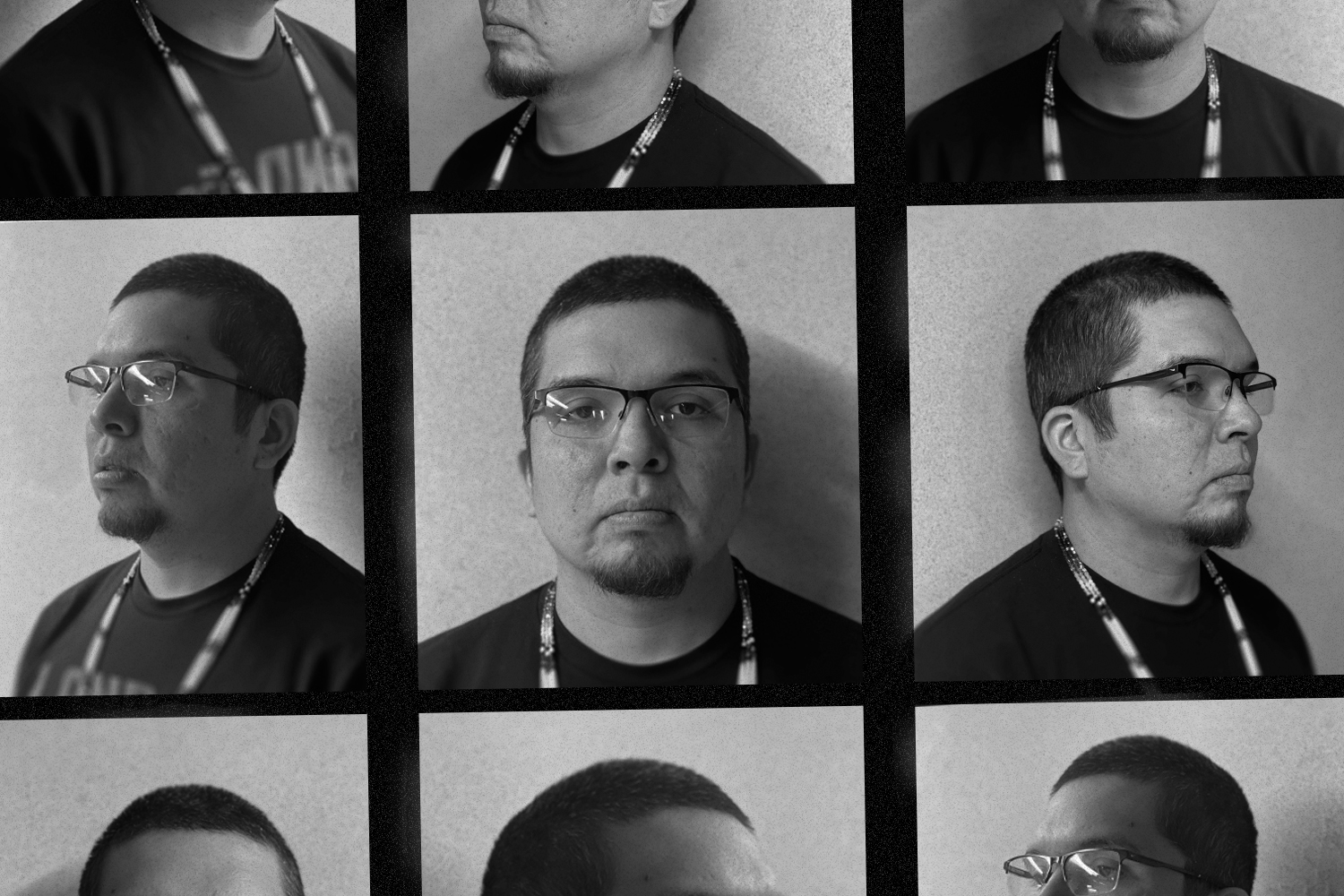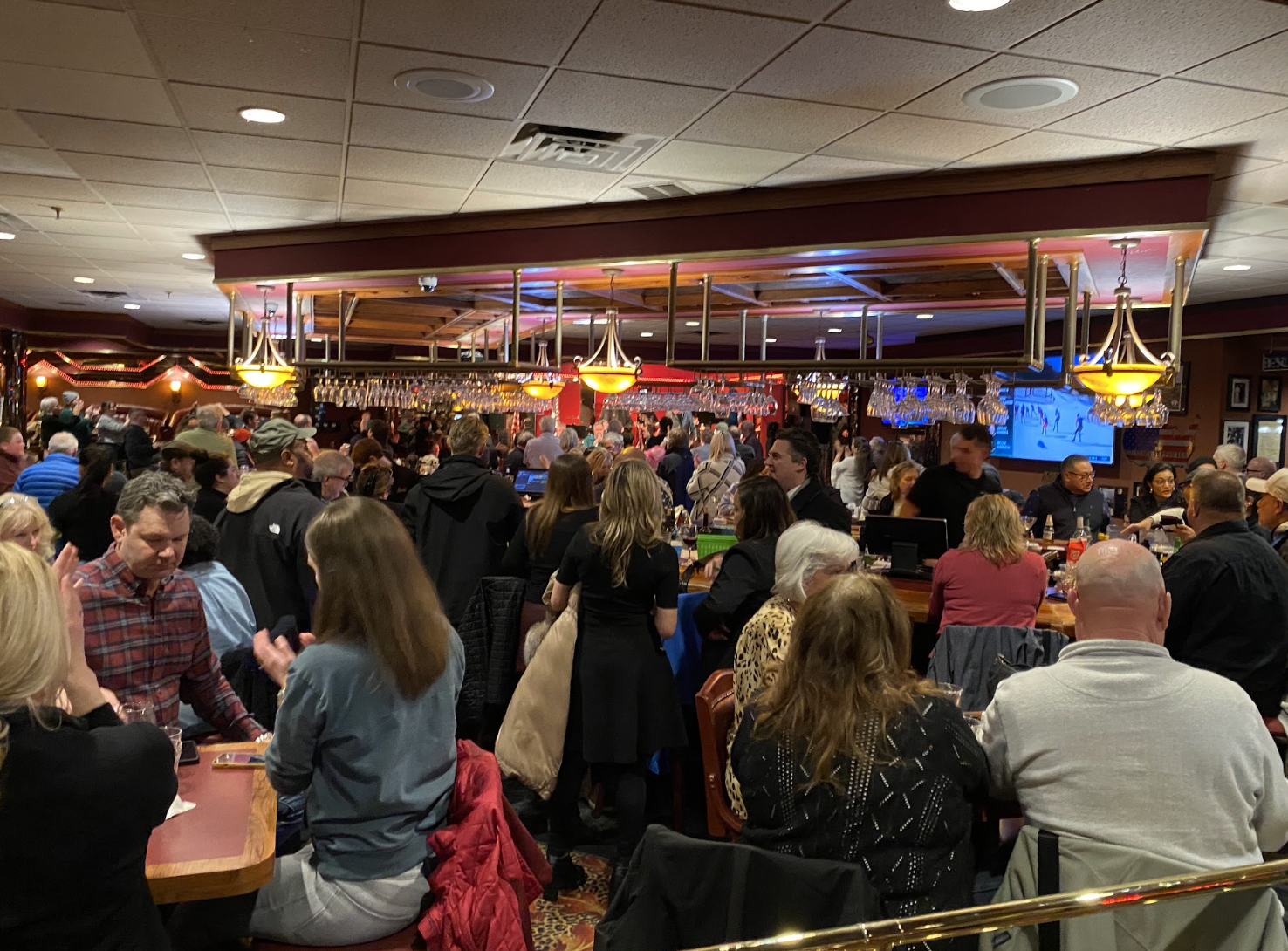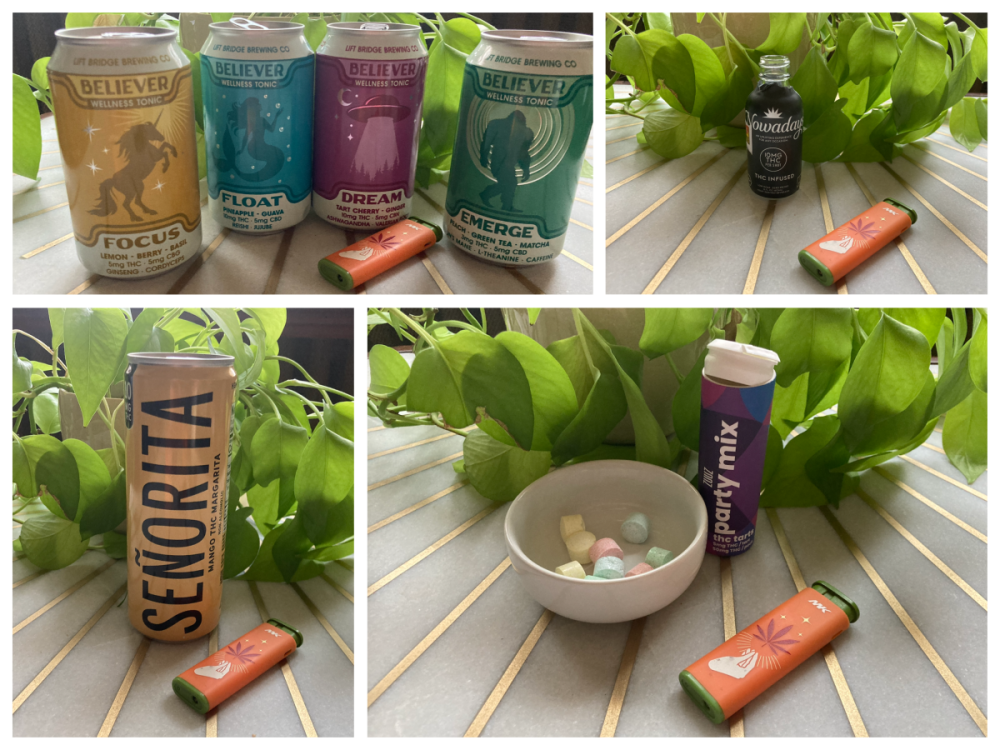Between bites of pepperoni pizza and sips of Coke at the Seward Pizza Luce, Joe Rainey is telling his life story. He just drove down to Minneapolis this morning from Green Bay, a trip he’s gotten used to over the years. The singer/producer grew up in this neighborhood, and his mother still lives down the street. When he performed at a First Nations Kitchen benefit in town last November, Rainey realized just how deep his roots here remain: “My mom still keeps in touch with my preschool teacher, and she was there volunteering at the Hook & Ladder show.”
A soft-spoken, laidback guy with plenty to say and a habit of thoughtfully qualifying his statements to make sure he’s presenting his full thoughts, Rainey is also the Upper Midwest’s most notable breakthrough artist of 2022. His collaboration with versatile Minneapolis production whiz Andrew Broder, Niineta (or “Just Me,” in Ojibwe), was released on Justin Vernon’s 37d03d label last May, and it scored features in Pitchfork and the New York Times, as well as scads of Twin Cities coverage. The recordings mix sampled Native pow wow singers, drawn from Rainey’s vast archives, with Broder’s sharp electronic interpolations, and Rainey himself sings over top. At times haunting, at others aggressive or ruminative or thrilling, Niineta is an album that not only stands as a landmark fusion on its own, but suggests future possibilities of mixing traditional Native performance styles with electronic music.
Rainey’s in town to rehearse for his most ambitious production yet, at the Cedar Thursday night, as part of the Great Northern Festival. Broder, working with William Brittelle, has arranged tracks from Niineta for the string quartet Owls, who will perform with Rainey and Broder. In addition, Isaac Gale, who directed Rainey’s “No Chants” video (you can see the singer obliterate Gale’s drone with a basketball) will provide visual production. When we met on Tuesday, Rainey hadn’t heard anything his collaborators had planned, but he was unruffled, stating, without a hint of arrogance, "This shit’s easy for me.”
As experimental as Niineta is, you can trace the origins of Rainey's music right back to the Native community that shaped him, and its thriving groups of pow wow singers. “Growing up in Minneapolis was important, to be part of a city where so many prominent groups come from,” says Rainey. As a kid he recorded his favorite singers on cassette; as he got older he started singing himself, eventually joining up with the well-known and respected pow wow group Midnite Express.
“We traveled around the country the way a band would,” Rainey says. Wherever they went, “the local pow wow committee of the tribal community would put up the money and basically have a battle of the bands every weekend.” And Rainey was traveling the circuit at an ideal time. “We grew up during the pow wow contest boom,” says Rainey, who’s now 35. “The prizes were getting larger. There was some clout to be had there.”
Though the prizes were sizable—sometimes as much as $20,000—a singer’s share wasn’t enough to support a family. (“The most common job for pow wow singers is working in the school system, with summers off so they can travel,” Rainey says.) He wound up in Green Bay, working in HVAC, but never fully removed from the pow wow scene or music in general.
Rainey says he got pulled into the indie scene, and the orbit of its Eau Claire-based stars in particular, when Ryan Olson hit him up in 2017. Olson’s personnel-shifting Marijuana Deathsquads was scheduled to provide a live soundtrack to some short films at the Walker’s “Sounds of Silents,” but they weren’t comfortable with the gig.
“This was just after the whole fucking gallows and shit,” Rainey says, referring to the museum’s installation of Scaffold, which was partly inspired by the structure where 38 members of the Dakota tribe were executed in Mankato in 1862. The work was eventually removed from the Sculpture Garden in response to widespread protests.
“Ryan wanted to slide something in the music to respond to that, to say ‘fuck you,’” Rainey says. The singer quickly wrote up lyrics culminating in the line, “They don’t want us to live here, we’re just trying to live,” which he got to sing as part of Deathsquads at the event. Rainey gets amped when talking about the experience. “There was this part where the dude came out of a coffin just as I yelled something—that was totally not planned at all.”
That set led to future collaborations. “The whole Deathsquads collective has been nothing but homies to me,” Rainey says. “I can let loose with them... If all I need to do is show up and freak out, well, cool. I’ve done that a few times—it’s some real punk shit.” He also likes the relative anonymity that comes from sharing the stage with so many other musicians. “No one can see me, all they can hear is some Native fucking wailing.”
Rainey’s Deathsquads work introduced him to a wide range of area musicians, which is how he eventually came to pair up with Broder on Niineta, and to secure the backing of Vernon’s label. The unanticipated success of the album made it many white listeners’ first prolonged exposure to pow wow music. “The question is, how can we reach people with this little piece, this crumb of our culture?” Rainey asks. “This part of our culture’s not for you to have, but if you want to experience it and learn about the music part of it, that’s where I think it can connect with anyone who likes music.”
And though Rainey did simplify pow wow music somewhat for Niineta, many of the structural factors remain intact. “A couple songs on the record are true to pow wow form, some of them I just did on the fly,” Rainey says, adding, with a laugh, “They are what they are.” Pow wow music is highly structured, he explains. A full verse—”a pattern of vocables set to a melody”—is repeated four times. “Sometimes I repeat it two or three on the album. But a full song is gonna be repetitive. That’s why it works so well with electronic music.”
Now that he’s fully established his place in the largely white indie world, Rainey’s been thinking about how he can pass on what he’s learned to other Native musicians. He was particularly struck by seeing the effects of a professional publicist—Pitchfork interviewed him before Niineta even dropped. “I want my Indigenous homies to get that same kind of love,” he says. “I want them to be represented the way I was represented. Someone who has to peddle their own career, how can they get helped out?”
And as a collector and preserver of sounds at heart (“If it was up to me, I’d really want to find a job archiving," says the singer, who maintains an archive of his pow wow recordings on Soundcloud), Rainey worries about the Native music that goes unheard. “There’s new stuff coming out every year, but people don’t have the ability or means or organization to promote their recordings or even to put up some of their old albums digitally,” he says. “That’s what I’m worried about, helping these groups out.”
Musically, Rainey is currently working on a project with another Justin Vernon affiliate, guitarist S. Carey, that he describes as “a little more floaty,” and he and Broder released a pair of tracks late last year with the North Carolina label Psychic Hotline. And his tour continues, with a few European dates for which Owls might join them.
For now, Rainey is happy to let the music upstage him. “I’m not out here doing photo sessions and shit. I’m just a dude,” he says. He points up at the pizza joint’s exposed heating pipes. “You want to come find me, I’m either ripping those down or putting those up somewhere.”
Joe Rainey
Where: Cedar Cultural Center
When: 7:30 p.m. Thursday, Jan. 26
Tickets: All ages. $27 advance/$32 day of show. More info here.






